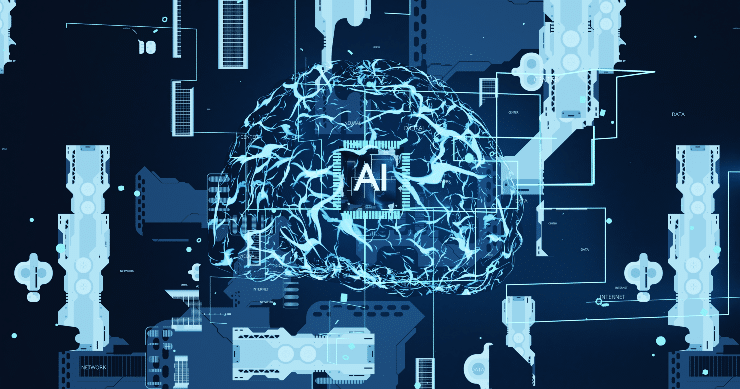What is AI Governance?
AI governance refers to the comprehensive principles, policies, and practices that guide the ethical development, deployment, and utilization of artificial intelligence (AI) technologies. It encompasses frameworks, regulations, and organizational mechanisms designed to ensure that AI systems operate responsibly, transparently, and by societal values and legal standards.
AI governance encompasses principles such as fairness, transparency, accountability, and privacy protection, which guide the development and deployment of AI systems. AI governance platforms facilitate compliance with regulatory requirements, mitigate algorithmic bias and discrimination risks, and promote trust and confidence in AI applications. For instance, Europe’s General Data Protection Regulation (GDPR) mandates that AI systems handling personal data comply with data protection principles, such as purpose limitation and data minimization. The not-yet-effective EU AI Act will also have serious implications for AI regulation in EU.

Why Should AI Be Regulated?
The need for AI governance has become increasingly pressing as AI technologies proliferate across various sectors and domains. With the rapid advancement of AI capabilities, policymakers and organizations have recognized the importance of establishing AI governance frameworks to ensure that AI systems are developed and deployed responsibly. The evolution of AI governance continues to unfold as new challenges and opportunities emerge in the AI landscape. As AI technologies continue to evolve, AI governance will need to adapt to address emerging ethical and societal challenges, such as the impact of AI on employment and the environment.
Who is Involved in AI Governance?
AI governance occurs at multiple levels, encompassing both macro and micro perspectives. At the macro level, it involves developing and implementing overarching policies, laws, and regulations by national governments, regional bodies, and international organizations. These regulatory frameworks set the foundation for ethical AI development, addressing data privacy, algorithmic transparency, fairness, accountability, and societal impact.
On the micro level, AI governance involves the actions and decisions of various stakeholders within organizations, including policymakers, industry leaders, AI developers, data scientists, ethicists, and end-users. Within organizations, governance mechanisms are implemented to ensure that AI systems adhere to regulatory requirements, ethical guidelines, and best practices. This includes processes for data management, model development, testing, validation, and ongoing monitoring of AI systems.
Which Countries Have Implemented AI Governance?
European Union (EU)
The EU has developed the AI Act, which is currently in the trilogue stage, indicating significant progress toward finalization and implementation. The Act aims to regulate AI comprehensively, including prohibitions on specific AI systems and stringent requirements for high-risk AI systems.
United States
While there is a decentralized approach to AI regulation in the United States, various federal initiatives address specific aspects of AI governance. Executive Order 14110 outlines goals for ensuring safe, secure, and trustworthy AI development and use at the national level.
Moreover, the National Institute of Standards and Technology (NIST) plays a significant role in AI governance through its NIST AI Risk Management Framework. Released by NIST, the AI RMF provides voluntary guidelines and recommendations for assessing and managing risks associated with AI technologies.
United Kingdom (UK)
The UK government has reaffirmed its commitment to a “pro-innovation” and “context-specific” AI regulatory approach. It has proposed sector-specific oversight of AI development and usage and issued guidance on AI use and regulation. The UK has also hosted events like the AI Safety Summit to address AI safety concerns.
China
China has implemented several regulations and policies to govern specific facets of AI usage, reflecting its proactive stance towards responsible AI practices. These include regulations governing algorithmic recommendation systems and generative AI technologies, as well as ongoing efforts to formulate regulations for deep synthesis technologies.
Canada
Canada is poised to enact the AI and Data Act to foster responsible innovation in the AI landscape. The proposed legislation includes provisions ensuring high-impact AI systems adhere to safety and human rights standards, empowering the government to enforce compliance and accountability across sectors.
Brazil
Brazil is advancing toward establishing a robust regulatory framework for AI with its proposed comprehensive AI Bill. The legislation aims to prevent specific “excessive risk” AI systems, establish a dedicated regulatory body for enforcement and oversight, and introduce civil liability regimes for AI developers.
Start Getting Value With
Centraleyes for Free
See for yourself how the Centraleyes platform exceeds anything an old GRC
system does and eliminates the need for manual processes and spreadsheets
to give you immediate value and run a full risk assessment in less than 30 days
Cultural and Ethical Considerations
Cultural and ethical factors play a pivotal role in shaping AI governance practices. Different societies may have distinct perspectives on privacy, fairness, and accountability, influencing the development and implementation of AI governance software. For instance, while some cultures prioritize individual autonomy, others may prioritize community welfare. Transparent AI is also a big item on the table. These cultural nuances underscore the importance of considering diverse perspectives in AI governance decision-making processes.
International Cooperation
Given the global nature of AI technologies, international cooperation is essential for establishing harmonized AI governance standards and frameworks. Collaborative efforts among countries, international organizations, and industry stakeholders facilitate information sharing, best practice dissemination, and alignment of regulatory approaches. Initiatives like the OECD AI Policy Observatory and the Global Partnership on AI (GPAI) promote dialogue and cooperation on AI governance at the international level.
Adaptive AI Governance Mechanisms
The dynamic nature of AI technologies necessitates adaptive governance mechanisms that can respond to rapid technological advancements and evolving ethical considerations. Flexible and iterative approaches to AI governance enable continuous learning, adaptation, and improvement of governance frameworks over time. Regular reviews, audits, and updates to AI governance policies ensure their relevance and effectiveness in addressing emerging challenges and opportunities.
In navigating the complexities of AI governance, it is essential to consider the multifaceted nature of ethical, cultural, and societal factors that shape governance frameworks. By incorporating interdisciplinary collaboration, international cooperation, human-centric approaches, adaptive mechanisms, and public engagement into AI governance efforts, stakeholders can ensure that AI technologies contribute positively to societal progress and well-being while addressing emerging challenges responsibly and inclusively.
Start Getting Value With
Centraleyes for Free
See for yourself how the Centraleyes platform exceeds anything an old GRC
system does and eliminates the need for manual processes and spreadsheets
to give you immediate value and run a full risk assessment in less than 30 days





